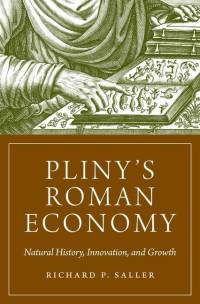Om Pliny's Roman Economy
"Recent works by economic historians of early modern Europe have argued for a link between encyclopedias of the 18th century and the developments culminating in the Industrial Revolution. Diderot and D'Alembert's great Encyclopedie aimed to disseminate useful knowledge for productive growth and was one of the most visible contributions to what economic historian Joel Mokyr has labelled a "culture of growth." While the Ancient Romans didn't have anything like these encyclopedias, they did have its very popular and acknowledged ancestor, the thirty-seven books of Pliny's Natural History. Much has been written about Pliny's view of nature, his scientific thought, his ideology of empire, and so on, but there has been no comparable effort to probe Pliny's economic views and the impact, if any, of his history on Roman economic growth. In Pliny's Roman Economy, eminent Roman historian Richard Saller aims to bring together the economic observations and instances of financial reasoning scattered throughout the Natural History. Taken together, they do not amount to a discipline of "economics," but, Saller argues they do provide insights into Pliny's views about different forms of production and commerce, about labor and agency, about price formation and profitability, about investment and consumption and about technology. Combined with archaeological and other evidence, Pliny's work can also provide us with one of our best textual pictures of the working of the Roman economy"--
Visa mer

